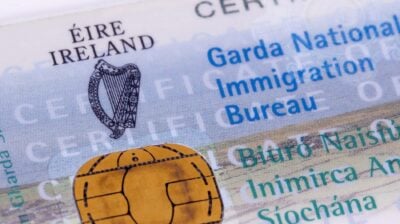What are my rights if I am a victim of a crime?
If you are a victim of a crime, trafficked or forced to commit a crime there are supports available to help


This factsheet is an extract from the publication Know Your Rights: The Rights of Children and Young People published by the Children’s Rights Alliance. It is reproduced here with their kind permission. Know Your Rights is a public information project designed to inform everyone, in plain language, of the rights and entitlements children have in Ireland and where to go when they are not respected.
A victim of crime is a person who has suffered physical, mental or emotional harm or economic loss which was directly caused by a criminal offence. Family members are also victims if the death of their loved one was directly caused by a criminal offence.
Who can I contact for support if I am a victim of a crime?
If you have been the victim of a crime you can contact the Crime Victims Helpline by:
- calling 116006
- texting 085 133 7711
They can provide you with information and support.
What are my rights if I have been the victim of a crime?
If you are the victim of a crime you have the right to get information that you can understand. If you need assistance, like an interpreter, you should be provided with this.
You also should report that crime to the Gardaí (the Irish police) on 999 or 112. When you report a crime to the Gardaí you have an entitlement to receive a formal written acknowledgement of what you have reported. You usually have an entitlement to a copy of any statement you make to the Gardaí.
You are entitled to be told by An Garda Síochána (the police force) about any victim support services, including specialist services, which may be able to help you. If you wish, the Gardaí can also refer you to these services.
Reporting a crime to the Gardaí
Usually, you also have the right to be accompanied by a person of your choice and your lawyer, if you wish, whenever you:
- approach the Gardaí for the first time to tell them about the crime
- complain to the Gardaí that a crime has been committed against you
If for whatever reason your parent or guardian can’t come with you, an ‘appropriate person’ like another suitable adult, can be asked to come instead. As a person under the age of 18 you are automatically presumed to need special protections as a victim of a crime. This includes having any interviews carried out by a person who has specialised training. Your interview may be recorded on DVD, and that recording may be played back in court.
What will happen if I report a crime?
The Gardaí must consider your best interests and your views when carrying out an assessment of what special protection measures you need. It is up to the Gardaí and the Director of Public Prosecutions (DPP) to decide whether or not to investigate a crime and bring it to court. Where a decision is made not to prosecute, you have the right to ask for a summary of the reasons for this decision.
Will I have to speak in court about what happened to me?
As the victim of the crime, you may be asked to appear in court as a witness to the crime if the accused person does not plead guilty.
If you are under the age of 18 you are automatically presumed to need special protections. These special protections include the right to avoid contact with the offender. This can mean testifying:
- from a different room, using a video link
- from behind a screen
It can also mean that you will not be questioned by the accused person themselves. Neither can you be questioned by a lawyer for the accused person on parts of your private life that are unrelated to the offence. Finally, it can mean that the court is closed to the general public. This means the news media reporters must not report anything that could lead to a child being identified.
What is a Victim Impact Statement?
A victim can also prepare a Victim Impact Statement which can be read in court. A Victim Impact Statement is an account in the victim’s own words of the effect that the crime has had on them. They may, for example, have suffered a physical injury, be affected emotionally or psychologically. They might also have lost out financially. If the accused is found guilty, when it comes to sentencing this statement may be read by the judge or by the victim themselves to the court.
Need more information, advice or guidance?
We offer information, advice and guidance about the issues that matter to you. Our online Youth Information Chat service is for 16 to 25 year olds and is available Monday to Friday, 4pm to 8pm (excluding Bank Holidays).






